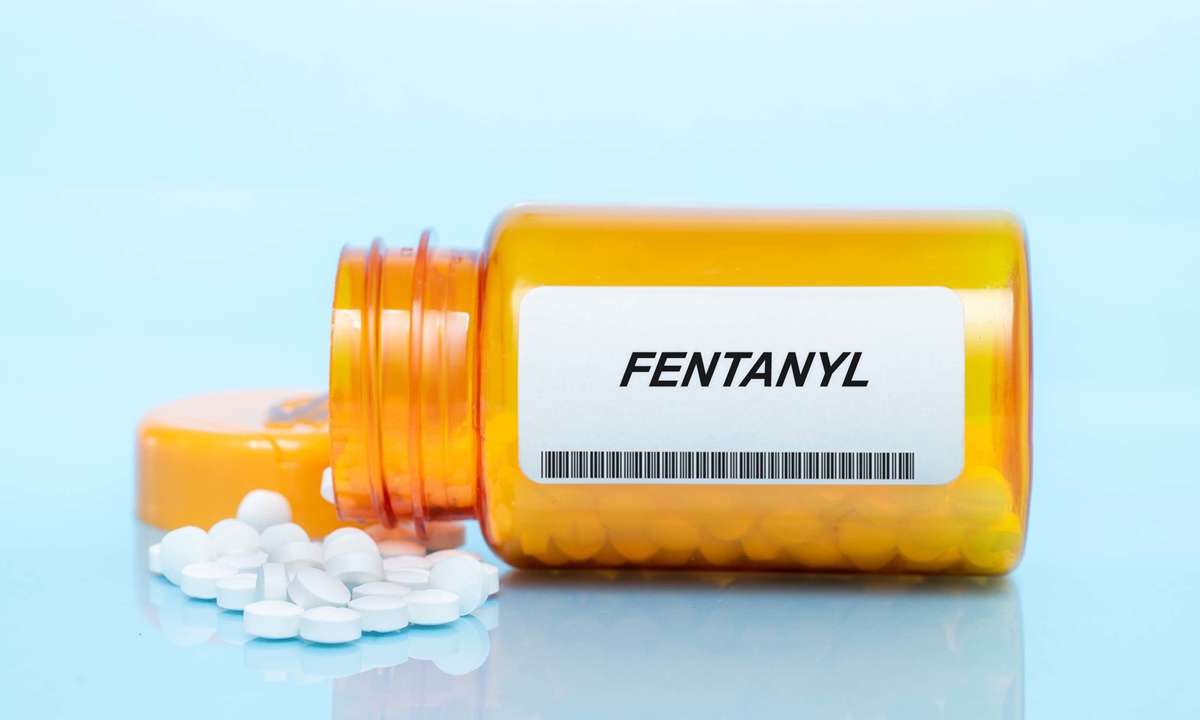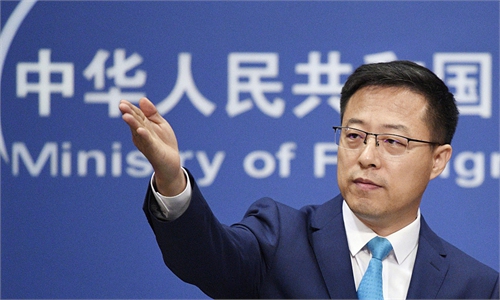
Photo: VCG
COVID-19 cases in the US are still increasing by tens of thousands per day, yet the US government has paid little attention to the epidemic, let alone putting in effort to face another endemic - drug overdose. However, the coronavirus has in fact aggravated drug abuse in the US. In 2021, nearly 108,000 people died of drug overdoses, almost 50 percent higher than the number in 2019.
More than two-thirds of the deaths involved fentanyl or other synthetic opioids. Fentanyl is a potent, fast-acting and addictive type of opioid. There is only a short window of time to intervene and save a person's life during a fentanyl overdose. A US Centers for Disease Control and Prevention (CDC) study reveals that fentanyl was involved in 77 percent of teen overdose deaths in 2021. From high school baseball players to 15-year-old schoolgirls, any minor can be exposed to the hazard. Tragedies take place too often to make headlines any more, but the government response, especially at the federal level, remains too little, and too late.
In September 2021, the Joe Biden administration launched a one-year list of drug policy priorities, in which it put more emphasis on treatment and harm reduction. The fentanyl test strip is on the list. Theoretically, it should help detect the existence of fentanyl in drugs and ameliorate the risk of drug use. In reality, however, the federal government's recommendation has faced resistance from states that regard the device as drug paraphernalia, as well as skepticism from experts who point out a lack of substantial evidence for its effectiveness in saving lives. Even if the kit worked, it cannot easily change the public's over-dependence on strong painkillers to reduce discomfort, or simply to get high.
Drug dealers profit from mixing powdered fentanyl into the drugs they sell. Their target is always addicted users, since a small quantity of the chemical goes a long way. Trafficked drugs have also taken a heavy toll on young people, who are often deceived to take on using fentanyl-laced pills by their bad friends or by strangers. In 2021, 9.5 million counterfeit pills were seized in the US, more than the number in the past two years combined. Drug regulators have warned the public against obtaining fake prescription fentanyl from unauthorized medical providers and pharmacies. But the traditional way of detecting and stemming trade on streets lags far behind the illicit underground trade conducted online or even with cryptocurrencies.
Criminals will eventually be brought to justice, given enough time and patience. But those raking in huge profits under the cover of legality can often get away from condemnable deeds. A study in early 2019 found that sales representatives of opioid manufacturers spent about $40 million promoting opioid medications to nearly 68,000 doctors from 2013 through 2015, including by paying for meals, trips and consulting fees. It also found that for every three additional payments that companies made to doctors per 100,000 people in a county, overdose deaths involving prescription opioids there a year later were 18 percent higher.
Court documents revealed that Richard Sackler, the then president of Purdue Pharma, which is the top manufacturer of OxyContin containing fentanyl, urged that sales representatives advise doctors to prescribe the highest dosage of the powerful opioid painkiller because it was the most profitable. As questions were raised about the risk of addiction and overdoses, Sackler turned to a strategy of diverting the blame onto the people who became addicted to opioids themselves. He wrote in an email, "We have to hammer on abusers in every way possible... They are the culprits and the problem. They are reckless criminals." In 2019, the company faced more than 2,700 lawsuits over the toll of opioids when it started negotiations about its bankruptcy settlement. In the ongoing process, the Sackler family leveraged its financial prowess and pledged to contribute $600 million over time to protect itself from the lawsuits.
But the cost on the big pharma and its owners may fail to relieve the pain endured by the bereaved families. Court filings showed the Sacklers took in $10 billion in profit from OxyContin and could recoup much of what they would lose in the settlement. And what they would compensate society, most of which comes from the settlement, falls far short of the more than $1 trillion the opioid crisis costs the US every year, according to the US CDC. More importantly, no amount of money will ever make up for the hundreds of thousands who lost their lives, the millions who became addicted, or the countless families torn apart by this crisis.
The US government has been delegating its primary responsibility to protect its citizens to the people themselves. The opioid crisis is just one case in point. Politicians have been ignoring the sedation or even outright poison administered by interest groups to the public, always for selfish political gains. As Americans and democratically elected officials, politicians should feel the cost of drugs on people's lives and the chronic pain inaction could bring to the country.
The author is a commentator on international affairs, writing regularly for CGTN, Global Times, Xinhua News Agency, among others. He can be reached atxinping604@gmail.com

